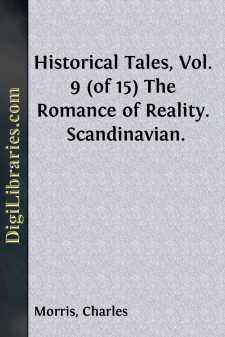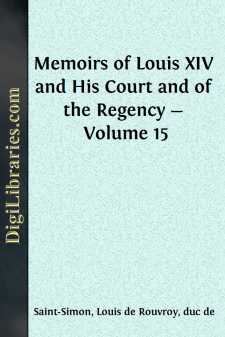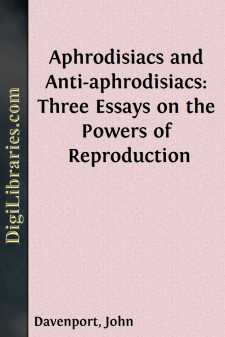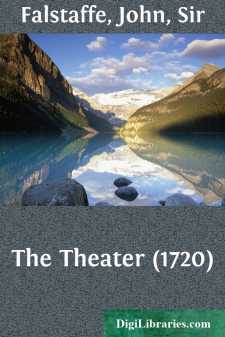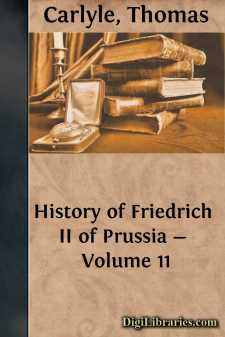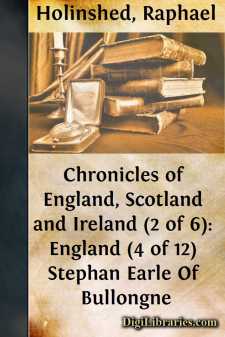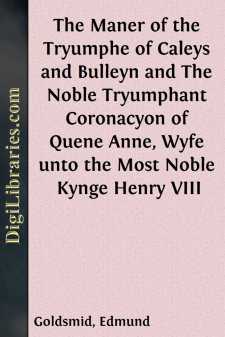History
- Africa 30
- Americas (North Central South West Indies) 50
- Ancient 68
- Asia 58
- Australia & New Zealand 8
- Canada 41
- Caribbean & West Indies 1
- Civilization 20
- Eastern Europe 12
- Europe
- Expeditions & Discoveries 60
- General 77
- Historical Geography 1
- Jewish 9
- Latin America 3
- Medieval 8
- Middle East 13
- Military 248
- Revolutionary 8
- Study & Teaching 5
- United States 353
- Western Europe 56
- World 13
Europe Books
Sort by:
by:
Charles Morris
HOW KING ROLF WON HISBRIDE. At one time very many centuries ago, we cannot say just when, for this was in the days of the early legends, there reigned over Upsala in Sweden a king named Erik. He had no son and only one daughter, but this girl was worth a dozen sons and daughters of some kings. Torborg she was named, and there were few women so wise and beautiful and few men so strong and valiant. She...
more...
Few events of importance had taken place during my absence in Spain. Shortly after my return, however, a circumstance occurred which may fairly claim description from me. Let me, therefore, at once relate it. Cardinal Dubois, every day more and more firmly established in the favour of M. le Duc d'Orleans, pined for nothing less than to be declared prime minister. He was already virtually in that...
more...
MURGH THE DEATH They knew nothing of it in England or all the Western countries in those days before Crecy was fought, when the third Edward sat upon the throne. There was none to tell them of the doom that the East, whence come light and life, death and the decrees of God, had loosed upon the world. Not one in a multitude in Europe had ever even heard of those vast lands of far Cathay peopled with...
more...
by:
John Davenport
ESSAY I. REMARKS UPON THE SYMBOLS OF THEREPRODUCTIVE POWERS. ROM the investigations and researches of the learned, there appears to be no doubt but that the most ancient of all superstitions was that in which Nature was contemplated chiefly under the attribute or property of fecundity; the symbols of the reproductive power being those under which its prolific potencies were exhibited. It is not because...
more...
by:
John Falstaffe
INTRODUCTION The Theatre, by "Sir John Falstaffe", is according to its author a continuation of Richard Steele's periodical of the same name. Shortly after Steele brought his paper to a close on April 5, 1720, the anonymous author who called himself "Falstaffe" appropriated his title; or if we prefer Falstaffe's own account of the matter, he was bequeathed the title upon the...
more...
by:
Thomas Carlyle
Chapter I. — PHENOMENA OF FRIEDRICH'S ACCESSION. In Berlin, from Tuesday, 31st May, 1740, day of the late King's death, till the Thursday following, the post was stopped and the gates closed; no estafette can be despatched, though Dickens and all the Ambassadors are busy writing. On the Thursday, Regiments, Officers, principal Officials having sworn, and the new King being fairly in the...
more...
STEPHAN EARLE OF BULLONGNE. 1135.An. Reg. 1. Stephan earle of Bullongne, the sonne of Stephan erle of Blois, by his wife Adela, daughter to William Conquerour, came ouer with all speed after the death of his vncle, and tooke vpon him the gouernement of the realme of England, partlie through confidence which he had in the puissance and strength of his brother Theobald earle of Blois, and partlie by...
more...
The dagger of Jacques Clement had done much, and was likely to do more, to change the face of Europe. Another proof was afforded that assassination had become a regular and recognised factor in the political problems of the sixteenth century. Another illustration was exhibited of the importance of the individual—even although that individual was in himself utterly despicable—to the working out of...
more...
by:
Edmund Goldsmid
Cum Priuilegio. I will certyfye you of our newes in the partyes of Caleys. Fyrst the xj. day of October whiche was Fryday in the mornyng at. v. of the clocke the kynges grace toke his Shyppe called the Swallowe and so came to Caleys by. x. of the clocke. And there he was receyved with processyon and with the mayre and the lorde delite and all the speres and the sowdyours in araye with a greate peale...
more...


